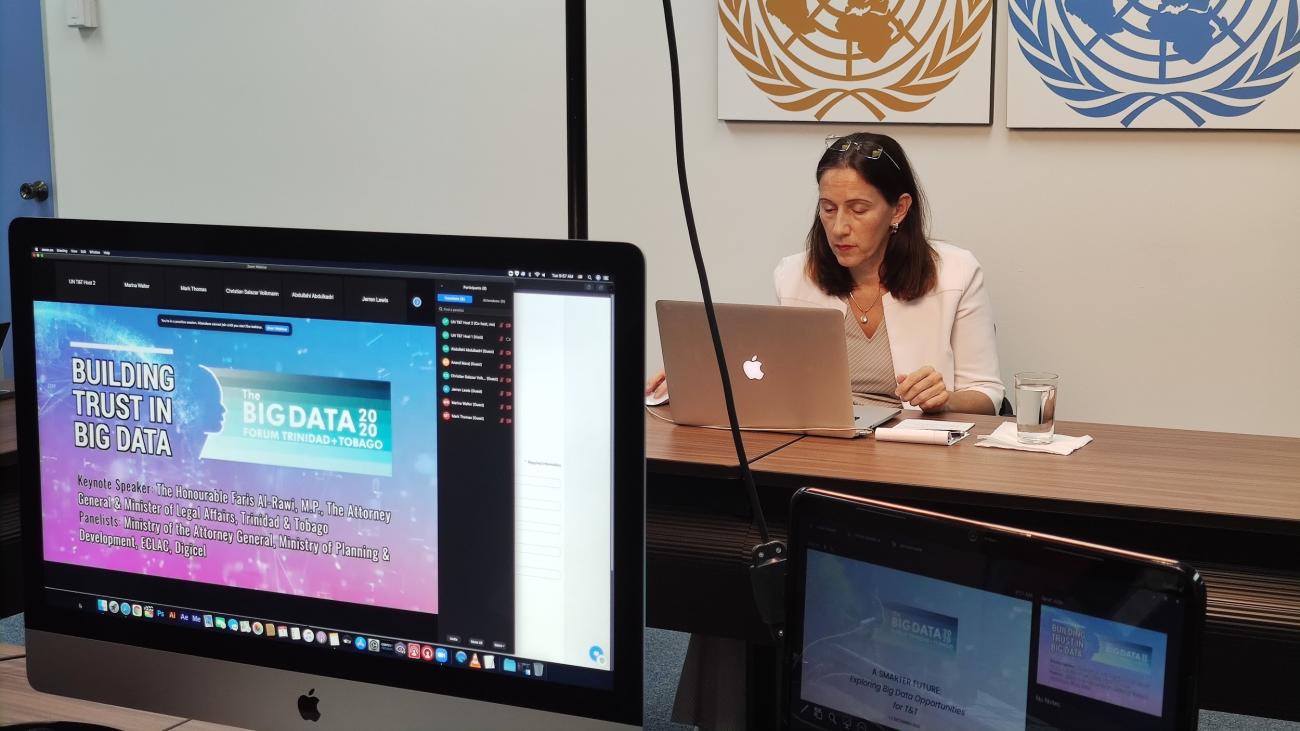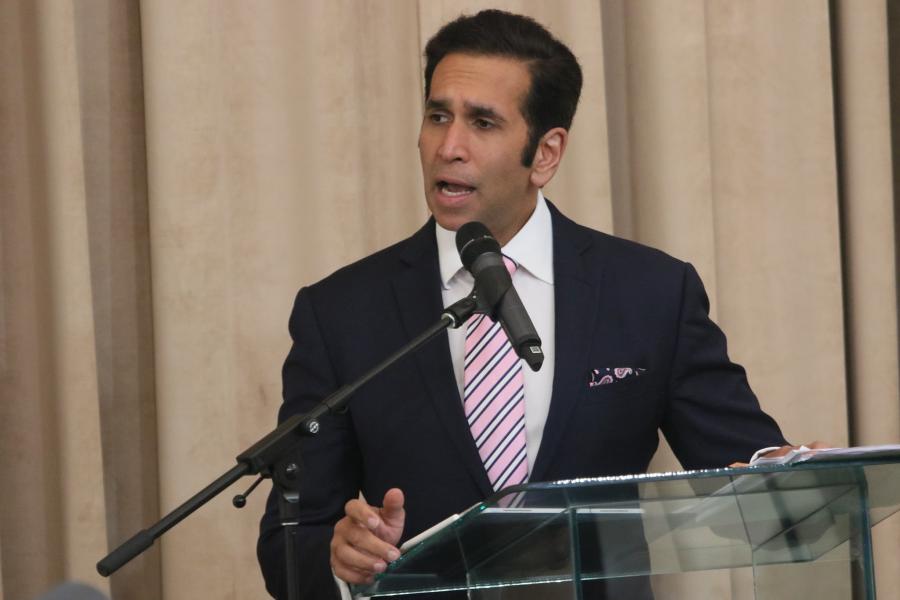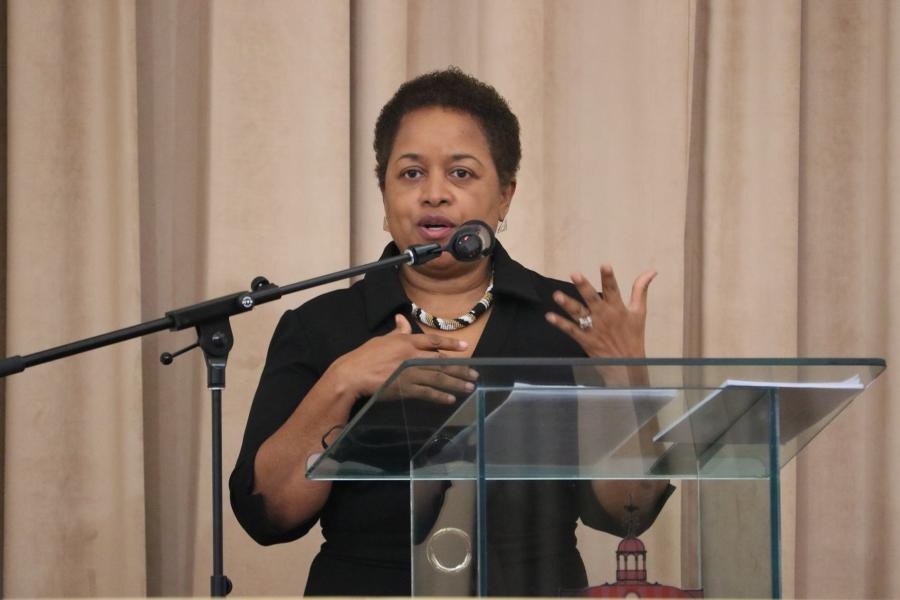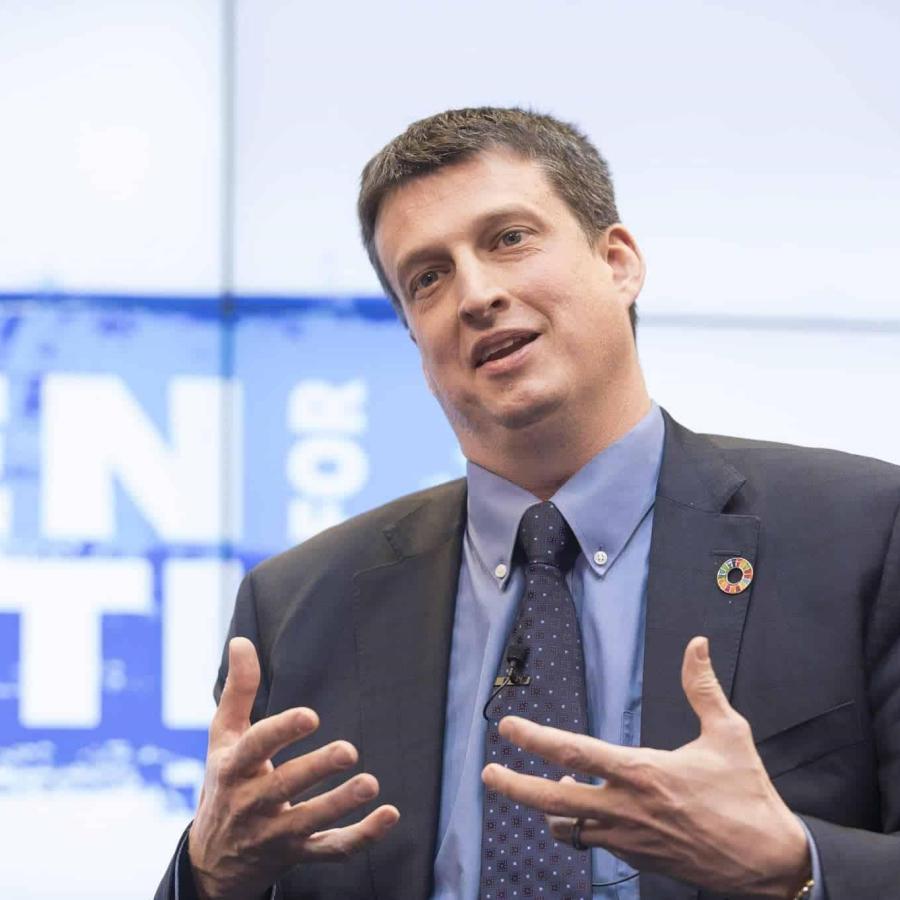Roadmap for A ‘Smarter’ Future - Trinidad and Tobago Poised to Tap Into ‘Big Data’

Few Caribbean countries have the digital footprint that Trinidad and Tobago does, owing to its widespread mobile phone usage.
Few Caribbean countries have the digital footprint that Trinidad and Tobago does, owing to its widespread mobile phone usage, robust internet consumption and legions of social media users. On social media, Trinis have channelled their love of a good laugh into a culture of creating and sharing viral memes. The country’s virtual cavalry has become so well known for its ability to mobilise mass support - and scorn - on Twitter, that they’ve been dubbed, ‘Trini Twitter.’ From road trips planned with GPS navigation apps to online shopping on local and foreign websites, users conduct millions of digital transactions daily in this twin-island nation.
These clicks, calls and swipes could be a gold mine for local policymakers trying to improve the arrival times and routes of public transportation buses or combat the spread of fake news.
If this vast pool of user data is harnessed beyond its original commercial purpose, it could help Trinidad and Tobago shape its digital future.
With these plans for progress in mind, the UN in Trinidad and Tobago brought together lawmakers, private sector telecommunications companies, global tech companies, data scientists and academia at the country’s first Big Data Forum on December 1 and 2. Participants traded ideas and success stories during a virtual forum organised under the theme, ‘A Smarter Future: Exploring Big Data Opportunities for T&T.’ The forum allowed more than 1,100 participants to hear directly from Fortune 500 companies such as Google and Amazon Web Services about the many ways the public sector can mine, store, interpret and use Big Data.
“Trinidad and Tobago is well-placed to be the regional Big Data leader,” said Marina Walter, UN Resident Coordinator for the twin-island nation. “How can Big Data be mined and analysed in a way that doesn’t invite abuse and does not cross over the boundaries of privacy and ethics?”
The imperative for using Big Data analytics and shaping the necessary privacy protection laws has a rapidly accelerating timeline given “the devastating impact that Covid-19 has had on our region,” according to Christian Salazar Volkmann, Director of the UN Development Coordination Office for Latin America and the Caribbean.
“It is very clear that the demand for Big Data for innovations, for state planning, for many users, is growing exponentially,” he said during the forum’s opening session. “DCO supports the Big Data revolution regionally, and looks forward to more opportunities like this Forum to explore ways to unearth its rich potential to accelerate development in the Decade of Action.”
Here are six key takeaways from the forum.

Attorney General of Trinidad and Tobago, Faris Al- Rawi: ‘The World Needs Common Ground Rules for Big Data Privacy’
In a world increasingly shaped by Big Data, a person’s movements from one place to the next are tracked using their mobile phone signal. That information is often stored in a massive digital repository thousands of miles away. Trinidad and Tobago’s Attorney General and Minister of Legal Affairs, Faris Al-Rawi, said that means the threat of data leaks, data hacks and privacy breaches has become a cross-border problem.
“This is very much reminiscent of the movie, Finding Dory, where you are a small fish swimming in a very large ocean with sharks all around you,” Al-Rawi told participants at the virtual forum.
If someone goes to the court to seek compensation for a data protection breach, whose law applies - the country where the user lives, or the country that hosts the data repository?
Al-Rawi believes the UN can stimulate important discussions to address the problem of conflicting laws in different jurisdictions.
“There is a lot of merit in a consistent international standard that can be applied,” Al-Rawi said. “But to avoid the vagaries of law and the collision of law, it is a place where we must agree upon ground rules and ground principles so we can all agree on the different zones. There is no better an entity to host that kind of forum than the United Nations by way of resolution.”

Dr. Maurice McNaughton, Dr. Lila Rao-Graham and Dr. Suzana Russell: ‘Caribbean Business Leaders Need To Buy-In To The Power Of Big Data’
Private sector companies own much of the region’s Big Data, but leading Caribbean academics have discovered that most business leaders don’t know how to unlock its potential.
A study conducted by the Mona School of Business and Management at the University of the West Indies (UWI), Jamaica found that 80% of companies believe they have valuable customer data just waiting to be exploited, yet nearly 70% of them have no strategy to make that happen.
Limited buy-in from corporate executives who may not see Big Data as an asset was identified as one of the major stumbling blocks, according to the three researchers from UWI Mona.
“Sometimes we use the examples of the Amazons and Netflix and people say, ‘Oh, these are large corporations, rich, have a lot of resources,’” Dr. Graham-Rao said during the forum. “We have to really demonstrate to the key stakeholders that these initiatives and the value of Big Data can be harnessed without necessarily investing significant resources in data-driven solutions.”

Minister of Public Administration and Digital Transformation, Allyson West: ‘Big Data Can Improve Governance and Accountability’
With just 24 months to get Trinidad and Tobago’s vast stores of paper-based records digitised, and the required data interface and storage solutions up and running to support digital recordkeeping, the Minister of Public Administration and Digital Transformation has a tight deadline to meet.
“Government will be throwing a lot of resources behind this in the next year or two,” Minister Allyson West told participants as she opened day two of the Big Data Forum. “The ministry is in the process of developing and implementing a single digital identity for every citizen within the next two years. That’s our very challenging target.”
Her main objective is to break down silos between the databases of individual ministries and public service agencies, so data can be shared across all government systems. West said health, education and social protection services are the main areas of focus for the government’s digitisation thrust.
“Covid-19 brought us face to face with deficits in our social services processes,” West said. “We are working to eliminate these problems with the integration of a number of public information databases.”
The country’s prime minister, Dr. Keith Rowley, announced in November that the government wants to revitalise the capital city, with plans for inner-city transportation routes, traffic management and new housing developments. West told the forum this project will lay the foundation for the modern infrastructure of a ‘smart city.’

Senior Fellow at the International Initiative for Impact Evaluation, Dr. Michael Bamberger: ‘Opportunities for big data in complex development evaluations’
The costs of data collection and analysis are falling rapidly. This, combined with rapid advances in Artificial Intelligence (AI) and related fields, opens up opportunities to transform the nature and scope of complex evaluations.
Dr. Michael Bamberger noted that the challenges facing most current evaluations include capturing the complex environment in which most programs operate.
“It is now becoming possible to model the complexity of the economic, political, socio-cultural, demographic and climate environment within which programs are designed and implemented,” Dr. Bamberger said during his presentation. “Previously, the data and analytical requirements meant that most current evaluations have adopted simple linear pre-test/post-test comparison group designs which have largely ignored the complex real-world environment in which programs operate.”
In the transition to the Fourth Industrial Revolution, Dr. Bamberger said evaluations should have a broader systemic focus and embrace the brave new world of data analytics and AI.

Evaluation Consultant, Dr. Lennise Baptiste: ‘Don’t Fear the Use of Big Data to Measure Effectiveness’
Evaluation consultant, Dr. Lennise Baptiste, who has extensive experience in the Caribbean evaluating the outcomes of government and donor projects, lamented that measuring effectiveness is usually an after-thought in the public sector.
“In our region, I’ve encountered that evaluation is something to be feared, we have people who get very defensive,” she said during her contribution to one of the forum’s panel discussions. “Evaluation is still seen as ‘very onerous’ and an ‘add-on’, and ‘we always have to do something more.’ In our region we still suffer from low levels of buy-in at the leadership level.”
She said data is often used to analyse individual projects or programmes, instead of longer-term assessments of development strategies in areas such as education and poverty alleviation. To help secure long-term use of data-intensive evaluations, Dr. Baptiste highlighted the need to value data and not see it as onerous or punitive. She suggested that more funding for evaluations should be made available as part of project and government budgets.

UN Global Pulse Executive Director, Robert Kirkpatrick: ‘Social Media Sentiments Can Help Shape Policy’
Global Pulse is the innovation arm of the UN that applies Big Data to humanitarian and national development solutions, with the help of companies who allow access to their data.
This ‘data philanthropy’ motivated Twitter to partner with Global Pulse, offering anonymised data sets that could be used to develop applications that solve development challenges.
“There are many types of data that can be aggregated and anonymised that do not require sacrificing privacy, and can be used for social development,” Kirkpatrick said.
He used the example of people sharing personal, daily experiences on social media about their households.
“There is a real opportunity now to collect information from that content,” he explained. “Social protection, why parents do or do not intend to vaccinate children, attitudes to women in the workplace, discirimination against minorities - these are all topics we have worked with partners over the UN system, and it works.”
Beyond social media, Kirkpatrick said there are other kinds of transactional data that could be “game changing in terms of institutional decision making.” He gave the example of GPS traces from mobile devices providing real-time information on human mobility patterns - a Big Data solution that could be useful in the Caribbean tourism and urban planning sectors.
Kirkpatrick supported the notion that a Center for Big Data Analytics within the region can benefit regional development by harnessing data from unconventional sources to provide new insights and guide the development of innovative solutions.
The Future looks ‘smart’
Trinidad and Tobago and the Caribbean, with support from development organisations like the United Nations, can leverage the potential of digital technology and artificial intelligence to develop smarter societies. Big Data and AI can help solve existing and emerging challenges within the region, and can help transform economies like Trinidad and Tobago towards a more sustainable path.
Platforms like the Trinidad and Tobago Big Data Forum can facilitate progressive discussions on the importance of building trust in Big Data, the integration of technology and platforms within the society and how Big Data can address societal issues.


